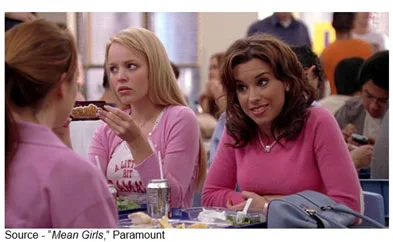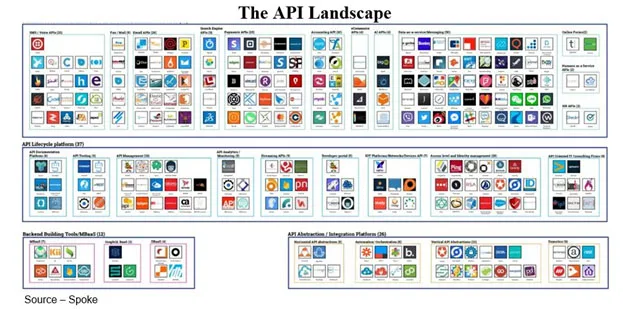Social Media Isn’t Social, It’s All About You

You probably have been so busy damning Zuck that you haven’t noticed that the rest of the social media industry is keeping a very low profile.
Yes, his company got caught letting a company “buy” too much information that people posted on “their” personal pages.
Yes, Cambridge Analytics figured out really creative, sneaky ways to put all of that personal information to use for their clients – nation states, politicians, whoever would write a check.
Yes, you thought your information on your page was yours (private), even though you shared it with friends and people you wanted to impress.
No, Facebook is not a non-profit or benevolent organization.
Their business model was to give people a place to get together and share information, ideas, things with others.
Sounds pretty similar to LinkedIn, Twitter, Badoo, WeChat, RenRen, YouTube, QQ, QZone, Instagram, BaiDu Tieba, Snapchat, YY, Pinterest, Redditt, Flixster, Nextdoor, Vine and tens of thousands of other folks around the globe.
Along the way, they’d sell profile information to firms as well as ads to people who wanted to reach, inform and persuade people who fit a certain profile.
Nothing sneaky or illegal so far because what the heck, you agreed to that because you signed the agreement of use or as Marc Goodman, author of Future Crimes, called the terms of abuse.
Goodman uses the example of LinkedIn, whose privacy policy states: “You grant LinkedIn a nonexclusive, irrevocable, worldwide, perpetual, unlimited, assignable, sublicensable, fully paid up and royalty-free right for us to copy, prepare derivative works of, improve, distribute, publish, remove, retain, add, process, analyze, use and commercialize, in any way now known or in the future discovered, any information you provide directly or indirectly to LinkedIn.”
Now there is a team of creative lawyers!
Don’t blame the social media folks or any of the millions of “free information” sites around because hey, there’s enough “blame” to go around.

Yes, Cambridge Analytics got caught putting that data to “good use” but as Mike Azzara and Esther Dyson wrote last year in MediaPost, the company isn’t the first and won’t be the last.
Thanks to all the big data firms accumulate and the AI tools that are increasingly being used, the marketing/advertising community is less than forthcoming about how much data they gather and what they do with it.
In defense of most in the community, they really don’t know themselves.
They buy some AI (augmented intelligence) tools that automatically sift through the piles of ones and zeros, find people’s data that fit a specific prospect profile and place ads where they hope to interest customers.
When it works they take full credit. When it fails or falls short, they blame it on the data or the analytic tools.
 Of course, the AI stuff didn’t work for Dave in 2001: A Space Odyssey when HAL said, “I’m sorry, Dave. I’m afraid I can’t do that.”
Of course, the AI stuff didn’t work for Dave in 2001: A Space Odyssey when HAL said, “I’m sorry, Dave. I’m afraid I can’t do that.”
But with this go-around, it will be different, better.
Most of the time, the placement of the ads is okay because who wants to go scrounging on the web to find a left-handed combination screwdriver/hammer/crescent wrench?
All that searching takes time and leaves an unsightly trail of crumbs for the search engine folks to use.
After all, you can’t buy everything from Amazon – who, like Apple, keeps all of your information private for their use and people who stay inside their walled gardens.
Okay, I get it; you really don’t want Facebook and social media people looking at, sifting through your personal data.
Nope, you want to just let it sit there in your shared-to-the-world bin.
But as Shelley Palmer noted not long ago, you do want them to check all the other stuff that’s going on on the Internet/Web.
You know, the dark web stuff (really bad stuff) or sick/evil things some humans want to do to other humans.
People want; expect; and yes, deserve to have the free global services find/take down/shut out what moral/ethical people feel are those who plan/carry out crime/violence, child pornography/sexual/deviant abuse or harm to others.
They expect the services to search out, locate and block malware, security violators, creepy/nasty items and cybercriminals outta’ their stuff.
Do you know how hard that is to do without … looking?
Because of the uproar the Facebook/Cambridge Analytics situation, governments around the globe are insisting on answers from Facebook on how they’re going to protect their citizens’ data from falling into the wrong hands and being misused/abused.
That’s a good thing but…
At the same time, governmental agencies and authorities want access to group’s and individuals’ data … or else!
There are also states that simply say give us backdoors into the free services you’re providing to our citizens and we’ll check the stuff ourselves to locate the bad items.
Don’t worry, they’ll know what they’re looking for when they see it.
All of that sucks, but you can’t put all the blame on Zuck.
He’s just the posterchild for the creeping shift of business ethics we’ve come to say is today’s new norm.
If you want to blame anyone, blame Robert Kahn and Vint Cerf who developed the engine
for the ARPANET (Advanced Research Projects Agency Network), which later became today’s free Internet.
Their plan was to hook up a bunch networks of networks, so scientists/educators could exchange information/ideas.
It was an ethical, cool good thing to do.
Then, in the late 1980s; Tim Bernes-Lee, a CERN scientist, developed HyperText Markup Language (HTML).
It was an ethical, cool good thing to do.
This jumpstarted the Web and voila! the Internet, search engines, websites and social media became an insidious part of people’s daily lives.
Suddenly, we’re alone together.
We don’t know what we don’t know and we’re good with that as long as things align with our version of the universe.
 As Gretchen said, “I’m sorry that people are so jealous of me… but I can’t help it that I’m popular.”
As Gretchen said, “I’m sorry that people are so jealous of me… but I can’t help it that I’m popular.”
Yes, Sheryl Sandberg will once again guide Facebook – and Zuck will move to a new, more transparent, more open environment.
Yes, the rest of the social media world will change their policies and be a little more cautious as to who they sell what to.
Life will return to its norm where people exchange their information for convenience, free stuff/information and a piece of a Nigerian princess’ millions to give to charity because she’s dying from indigestion.
Life will return to its norm where folks try to work the system to get elected (preferably for life) and governmental agencies will get the dirty job of sifting through the Web with their AI tools to find out who’s doing – or thinking about doing – what to whom.
Life will return to its norm, but people’s ethics will shift … again.
# # #